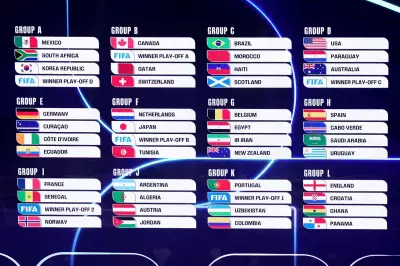
The race for European football's most coveted prize has been given a data-driven preview, as the famed Opta supercomputer has simulated the entire 2024/25 UEFA Champions League season thousands of times to calculate each team's probability of glory.
The results deliver a clear verdict: the Premier League is the dominant force. Reigning English champions Manchester City emerge as the overwhelming favourites, with the supercomputer giving Pep Guardiola's side a staggering 35.1% chance of winning the tournament—a probability more than triple that of their nearest rival.
Arsenal Tipped For Deep Run, Spanish Giants Follow
Mikel Arteta's Arsenal, who pushed City all the way in the Premier League last season, are given a strong 10.3% chance of securing their first-ever Champions League title, positioning them as the second-most likely winners. This places the Gunners ahead of Spanish heavyweights Real Madrid (9.9%) and Barcelona (5.4%).
The supercomputer's model suggests a growing confidence in Arsenal's ability to translate domestic form into a sustained European challenge, marking them as the primary threat to City's ambitions.
Mixed Fortunes For Other English Contenders
The forecast reveals a stark contrast in the projected fortunes of England's other representatives. Liverpool, under new management, are handed a 4.2% chance of winning, a figure that sees them ranked as the sixth-most likely team overall.
The outlook is considerably bleaker for Manchester United and Newcastle United. Erik ten Hag's Red Devils are given a mere 1.5% chance of triumphing in the final at the Allianz Arena in Munich. Meanwhile, the Magpies, back in the competition after a 20-year absence, face the toughest statistical battle, being handed the lowest chance of any English team at just 0.6%.
A New-Look Tournament
This season introduces a revolutionary new format for the Champions League. Gone is the traditional group stage, replaced by a single 36-team league. Each team will now play eight matches against eight different opponents in this initial phase, setting the stage for a more unpredictable and gruelling path to the knockout rounds.
While the supercomputer provides a fascinating statistical insight, the beautiful game is famously decided on the pitch, not in a data centre. The stage is set for another thrilling chapter in European football's premier competition.





